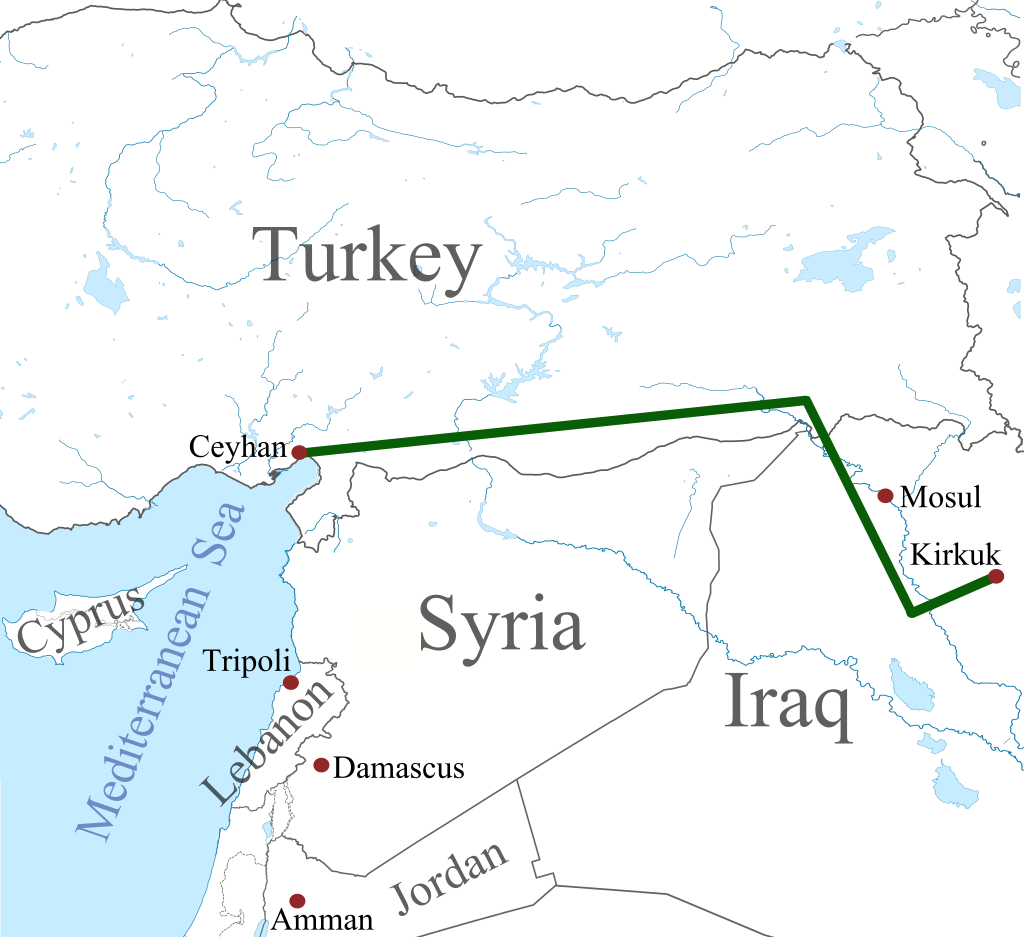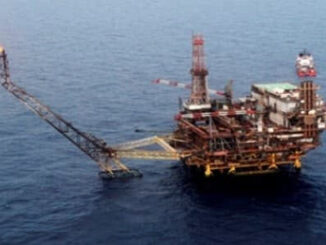
The Iraq-Turkey oil pipeline, also known as the Kirkuk-Ceyhan pipeline, transports crude oil from Iraq’s northern Kurdistan region to the Mediterranean port of Ceyhan in Turkey. It was originally built in the 1970s and has been a key export route for Kurdish oil. Prior to its shutdown, the pipeline had a capacity of approximately 450,000 barrels per day (bpd).
The pipeline was halted in March 2023 following a ruling by the International Chamber of Commerce (ICC) in Paris, which ordered Turkey to pay Iraq about $1.5 billion in damages for facilitating unauthorized oil exports from Kurdistan between 2014 and 2018 without Baghdad’s approval.
Iraq’s federal government argued that its state oil marketing company (SOMO) holds exclusive rights to export the country’s oil, and the halt led to estimated losses exceeding $35 billion for Iraq, according to the Association of the Petroleum Industry of Kurdistan (APIK).
Reasons for the Halt
The shutdown stemmed from long-standing disputes over oil revenue sharing and export control between Iraq’s federal government in Baghdad and the semi-autonomous Kurdistan Regional Government (KRG). Iraq initiated arbitration in 2014, seeking up to $33 billion in damages, claiming Turkey violated a 1973 pipeline agreement by allowing independent Kurdish exports.
A second arbitration case for exports from 2018 onward remains unresolved.
During the closure, Kurdish oil volumes (around 180,000-190,000 bpd) continued to reach markets through smuggling routes, meaning the restart does not add net new supply to global markets but redirects existing flows.

Details of the RestartOil flows resumed on September 27, 2025, at 6:00 a.m. local time (03:00 GMT), marking the end of a 2.5-year hiatus.
The restart followed an interim tripartite agreement between Iraq’s federal oil ministry, the KRG’s Ministry of Natural Resources, and international oil companies operating in Kurdistan (eight firms representing over 90% of regional production).
Under the deal:
The KRG delivers crude to SOMO for export.
Sales are managed by an independent trader at SOMO’s official prices from Ceyhan.
Producers receive $16 per barrel to cover production and transportation costs.
Within 30 days of resumption, parties will negotiate to settle a $1 billion debt owed by the KRG to the oil companies.
Initial flows started at around 150,000-190,000 bpd, with plans to ramp up to 230,000 bpd in the coming days or weeks.
Operations resumed smoothly without major technical issues.
The U.S. government supported the deal, with Secretary of State Marco Rubio noting its benefits for both Americans and Iraqis.
Key Specifications and Implications
|
Aspect
|
Details
|
|---|---|
|
Pipeline Name
|
Iraq-Turkey (Kirkuk-Ceyhan) Oil Pipeline
|
|
Route
|
From Kurdistan region (e.g., fields like Tawke and Shaikan) in northern Iraq to Ceyhan port, Turkey
|
|
Pre-Halt Capacity
|
~450,000 bpd
|
|
Halt Period
|
March 2023 to September 27, 2025 (2.5 years)
|
|
Restart Date
|
September 27, 2025
|
|
Initial Flow Rate
|
150,000-190,000 bpd
|
|
Target Flow Rate
|
Up to 230,000 bpd
|
|
Involved Parties
|
Iraq federal government (oil ministry, SOMO), KRG (Ministry of Natural Resources), 8 international oil companies (e.g., Gulf Keystone Petroleum), Turkey, with U.S. backing
|
|
Economic Impact
|
Expected to add $400-500 million monthly to Iraq’s budget; eases KRG financial strains like salary delays; stabilizes Baghdad-KRG relations 2 sources
|
|
Global Implications
|
Aligns with OPEC+ plans for production increases (e.g., 137,000 bpd hike in November); could help moderate crude prices amid efforts to curb Iranian exports 2 sources
|
Global Implications
Aligns with OPEC+ plans for production increases (e.g., 137,000 bpd hike in November); could help moderate crude prices amid efforts to curb Iranian exports
The restart is seen as a step toward better resource management in Iraq, though long-term contract terms may be revisited in January 2026. This is crucial for global supply and financial stability in Iraq.
Got A Tax Burden in 2025?
Crude Oil, LNG, Jet Fuel price quote
ENB Top News
ENB
Energy Dashboard
ENB Podcast
ENB Substack






